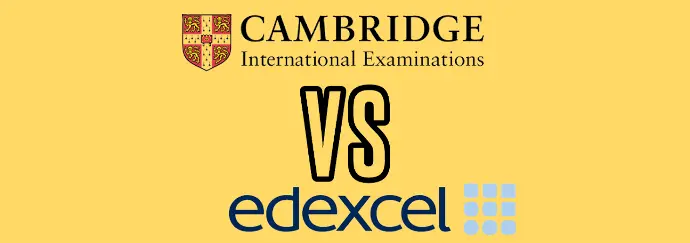ICT/CS WITH AREFIN
"I'm a passionate educator dedicated to helping students achieve their academic goals. I use a variety of teaching techniques that have been proven effective."
1,800 students have already chosen ME to achieve their educational goals.
Join me and make the right move towards your future.
SUBJECTS COVER

Edexcel IGCSE ICT

EDEXCEL IGCSE CS

CAIE IGCSE ICT

CAIE IGCSE CS

CAIE A'LEVEL CS

CAIE A'LEVEL IT

EDEXCEL A'LEVEL IT
EDEXCEL A'LEVEL IT
Curriculams
subjects
studnets
A* and A Grade achieved
Learn from anywhere
Take your education to the next level with my online learning platform. Learn from the comfort of your home.
CAMBRIDGE / EDEXCEL
Difference in Between

CIE is Cambridge International Examinations and is a sister company to OCR, which offers GCSEs and A-levels etc. Edexcel is a subsidiary of the publisher Pearson, and it offers IGCSEs alongside the full range of UK qualifications. They are both respected bodies in the UK and their qualifications have equal value.
When you choose your IGCSE/International GCSE or A-level subjects, you may also have a choice of exam board. Exam boards are organisations that offer qualifications to students, and it’s their job to produce exam papers, mark your work and award your grade. For school exams, we work with two main boards: Cambridge International Examinations (CIE) and Pearson Edexcel.


Syllabus/Curriculam
Their examinations are benchmarked at the same level of difficulty, though everybody has their own opinion about which particular subject is easiest with which board. For instance, some say that CIE has a reputation for being easier for English, and harder for maths, but unless you have a large group of students taking both exams it’s difficult to make a fair comparison.
But most of the students perception is CIE generally considered to be harder and tougher than Edexcel mainly because they have to maintain more of an international standard than Edexcel. Edexcel is more UK based, hence their difficulty as well as course structure and paper structure is more in line with the UK system, whilst CIE is an entirely free body and they set their own exam structure which is as well approved by QCA.
Starting off with the structure differences in CIE exams. As you probably know Edexcel, AQA, OCR exams are all 6 paper exams, but CIE A level Chemistry, Biology and Physics are all 5 paper Exams and Mathematics is a 4 paper exam.
- Paper 1: for the sciences are a 40 question multiple choice paper.
- Paper 2: for the Sciences is a AS core content Structured paper
- Paper 3: for the sciences is the one and only practical paper lasting 2 hours.
- Paper 4: for the sciences is a rather long and hard A2 content paper with the application units for each subject.
- Paper 5: is a planning, analysis and evaluation paper, you may not have seen in UK boards.
- As for Maths you have the compulsory P1 which is AS pure. Then you have an option of going for some more pure which is P2 or mechanics P4 or Stats P6 to complete an AS. So for AS you need P1 and one of P2, P4 or P6.
- For A level maths you need the AS modules obviously, and compulsory P3 and one other paper you haven't used already for AS.

Their examinations are benchmarked at the same level of difficulty, though everybody has their own opinion about which particular subject is easiest with which board. For instance, some say that CIE has a reputation for being easier for English, and harder for maths, but unless you have a large group of students taking both exams it’s difficult to make a fair comparison.
But most of the students perception is CIE generally considered to be harder and tougher than Edexcel mainly because they have to maintain more of an international standard than Edexcel. Edexcel is more UK based, hence their difficulty as well as course structure and paper structure is more in line with the UK system, whilst CIE is an entirely free body and they set their own exam structure which is as well approved by QCA.
"So how do you choose between them? Both boards offer qualifications that are internationally recognized and accepted by colleges and universities around the world."
Wherever in the world, your students want to go, help them get there with Cambridge IGCSE.
We created Cambridge IGCSE more than 30 years ago. Today, it’s the world’s most popular international qualification for 14 to 16-year-olds. Not only is it truly international - it gives students more options than any other international qualification. That means more subjects to choose from, more ways to learn, and more ways to succeed.
We align the standards of Cambridge IGCSE with the GCSE qualification taken in England. Learn more (PDF, 153KB)
"Cambridge IGCSE provides a diverse curriculum catering to 21st-century learning.
Neville Sherman, Principal, The Westminster School, Dubai "
Pearson Edexcel International GCSEs are globally recognized qualifications with academic content and assessment designed specifically for international learners.
International GCSEs are part of iProgress, the complete series of Pearson Edexcel academic qualifications for 5 to 19 year-olds, for international schools. The iProgress family includes: iPrimary, iLowerSecondary, International GCSE (IG), GCSE, International Advanced level (IAL), GCE A level. It delivers a consistent learning journey for students and teachers, with world-class support services, everywhere in the world.
International GCSE and GCSE comparability update - November 2019.